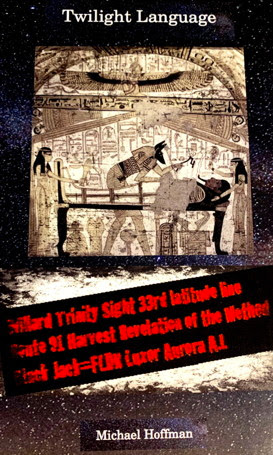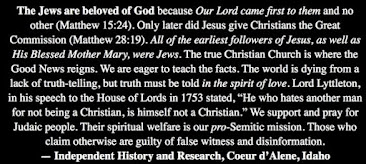LEBANESE PRESIDENT LAHOUD: I'm afraid to say it is not. And really all the time, massacres are happening in Lebanon. All the infrastructure is being hit and we are paying very high price. We have women, children, all are being hit by planes. And they never stop, people think that they will stop for a few hours. They go out to get their food or anything and suddenly they are hit again. This is a real massacre.
ROBERTSON: Do you think that the war is spiraling out of control and getting worse?
LAHOUD: It is getting much worse, and day after day more targets are getting hit. As you know the airport has been hit, all bridges, big bridges, small bridges, and now the roads. Only yesterday, only 200 meters from here, at 11 at night, they hit the road. Just like this, they are creating fear and, really, it is cycling to the point of no return. That is why that as soon as possible we are asking that there be a cease-fire...we've had lots of visitors coming from abroad. But unfortunately they are talking, going, and coming and talking all the time but with no result. And this makes us think, is there anything behind that? Do they want to give more time to Israel to hit more?
ROBERTSON: But as commander in chief of the army, why don't you tell the Lebanese army to stop Hezbollah and then bring an end to this?
LAHOUD: Well, if you knew the interior politics of Lebanon, you will understand that in 2000 Hezbollah was the main liberator of our land. And at the time, the Lebanese army was and still is with what is happening on the frontier. Because, you see, what was happening was Israel with airplanes ... but having the resistance (Hezbollah), they think twice. And because of that there is no animosity between the army and the resistance. ... The resistance are Lebanese.
ROBERTSON: Do you mean the army supports Hezbollah at this time in their fight against Israel?
LAHOUD: Believe me, what we get from our side is nothing compared to if there is an internal conflict in Lebanon. So out thanks comes when we are united, and we are really united, and the national army is doing its work according to the government, and the resistance (Hezbollah) is respected in the whole Arab world from the population point of view. And very highly respected in Lebanon as well.
ROBERTSON: If you were to call on the army now to stop Hezbollah from attacking Israel, to stop Israel therefore attacking Lebanon. Would that divide the army along sectarian lines? Would the Shiites in the army go with Hezbollah?
LAHOUD: In the first place, I wouldn't give such an order. Believe me, Hezbollah has done a lot for Lebanon in liberating this land. ... Hezbollah is part of the government.
ROBERTSON: How close is this country (Lebanon) to moving its army into the fight now?
LAHOUD: Well, I can't tell you now. What we're thinking is to have a cease-fire. That's what we're thinking because things that have been happening have not been happening before. I'll give you an example: Only yesterday, 23 tons of ammunition explosives came on one building, one mosque that is being built. That is more than is a tactical nuclear bomb. That means that they are using like a tactical nuclear [bomb]. But because [it is] conventional weaponry, no one is saying anything. But the result is really havoc, and we can not accept it. So before thinking about anything else and telling the army what to do and all that, the international community must really, as soon as possible, stop this killing, stop this fire....
ROBERTSON: Not everyone supports Hezbollah, and there are divisions in this community. And this country fought a 15-year civil war over those divisions. Those divisions are re-emerging below the surface of support of the attacks that are going on. Those figures could realistically grow bigger.
LAHOUD: Yes, but we're not going to let them. Because the Lebanese have learned the lesson. Because when they fight between themselves it's much worse than having someone come from outside. Because we've seen what happened in '75 because we paid a very high price. Now, being united, whatever Israel can do we stay strong, because this makes the morale of the Lebanese stronger when they are united and no one can beat them....children are being killed, massacred. And we don't see these pictures of these children in the international media because of political reasons. If you see them, well you can't wait to talk about it and wait for these children and women with nowhere to go and live under bombs and shells. They just live outside. They don't have a shelter.
We can't wait for the talks to go on. Meanwhile the aircrafts are bombing whatever they want in Lebanon. It never happened. ... I don't see anything in history that has happened like what is happening now. Airplanes are hitting civilians all over the country and [there is no] retaliation on these airplanes...
I hope ... that we solve this problem before it escalates and then we can't stop it. Believe me, violence brings violence, and it will be a cycle that no one will be able to get out of and everybody will lose. If Israel thinks it's going to win, it's very mistaken. You cannot solve things and have peace in the region with violence. It might be now they have all this weaponry. But what about the children and the people who have brothers and sisters now dying? Well, they're pushing them to, really, well, they don't have anything to lose. For them, their life is nothing, so...(i)n the future they will seek revenge. So the only way [is] to stop the firing right now for the good of everybody.
ROBERTSON: What's the solution that's going to work here?
LAHOUD: Cease-fire and then we talk.
ROBERTSON: How do you get the cease-fire? The Israelis want their soldiers back.
LAHOUD: There were three in Lebanon that have been in prison since 30 years. And there were many, and there was an exchange. So why now, suddenly, after taking two soldiers they have done such a retaliation? Because I believe all was planned from before and, unfortunately, they were waiting for the moment. And when the moment came and these two soldiers were taken, they had the plan of attack. It's not for the reason that the soldiers were taken, it's for other reasons. Because since 2000 they have wanted to take their revenge because they had to leave Lebanon. They have other things in mind as well.
ROBERTSON: Why didn't the government keep Hezbollah under control if the situation is so potentially divisive?
LAHOUD: All I can say is now two soldiers have been taken and in response they are doing massive destruction in Lebanon. Is that right? I don't think so because it is very disproportionate. Two soldiers have been taken, and in the past soldiers have been taken and they exchange. So now, why they are doing that? Because they have a previous plan and they are executing that plan in that way thinking they will do what they did in '82.
But things have changed since '82.
ROBERTSON: How?
LAHOUD: Because it's not like '82 that they can come in Lebanon and make a promenade until they reach Beirut. These people, underground Lebanese, are ready to die for their land.
ROBERTSON: Hezbollah?
LAHOUD: Not only Hezbollah, many people are ready to die for their land. Wouldn't you do that if they go inside your country? You'd do the same. And the Lebanese army as well. We're not going to let anyone take our land. We've done it in the past, we liberated our land. We're not going to let them come back and take it from us.
ROBERTSON: How bad is the humanitarian situation right now?
LAHOUD: It's a catastrophe. If I told you there's nothing to eat, nothing to put fuel in their cars, electricity is nearly always stopped. You can't go on the road because you don't know when an aircraft hits you. ... And we know very well, by the satellite you can see...So how can they make that mistake? They're using these ways to make people afraid and leave the country and then bring down the morale of the people. And then at the end they come and occupy and do what they did at the end of '82, or change everything in Lebanon and have it the way they want it like they did in '82. We're not going to let them.













No comments:
Post a Comment